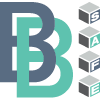BBSafe | Safeguarding Culture & Compliance
Safeguarding people with disability; free safeguarding webinar – June 2025
WARNING – CONTENT MENTIONS ABUSE
Free BBSafe safeguarding webinar 25 June, 12-1pm AEST
Our next free safeguarding webinar will be on Safeguarding children and adults with disability.
Adults and children with disability can have considerable contact with workers and services. In this webinar, we will explore risks of abuse and exploitation in the disability sector and settings, using the Building Blocks Framework and the BBSafe Risk Assessment Framework. Register here:
https://events.humanitix.com/bbsafe-free-safeguarding-webinar-or-safeguarding-adults-and-children-with-disability
Safeguarding practice in disability services
People with disability may have a lot of contact with organisations and services, and rely on workers for support for a range of life activities. This contact and reliance can make people susceptible to abuse and exploitation. These risks vary depending on the type of service being provided, the characteristics of the person in receipt of services, and the strength of support networks around the person.
Here are just some of the factors at play in relation to the dynamics of abuse and exploitation of people with disability in their contact with providers and workers:
– personal care – both the nature of these services and the fact that they are provided away from other people creates risk of abuse
– isolation with workers – services provided in a home or other place away from others can be exploited
– reliance on a worker for food, medication, shelter etc may mean that people can fear losing support if they speak up about concerns
– social isolation – the lack of a strong support network may mean there are limited trusted people around the person with disability to advocate for them or for them to raise a worry with or to observe ill treatment by a worker
– communication ability – it may be difficult for people with disability to raise concerns or tell others they are being hurt
– financial information about the person and access to their money can be exploited
– contact with other clients of a service provider could expose people to additional risk of violence or abuse
– not knowing their rights or how to raise a concern with a provider
– not knowing what to treatment to expect from workers and what professional boundaries should look like.
Organisations working with people with disability can put a lot of strategies in place to help to prevent abuse, to have it detected early and responded to well if something does go wrong. Compliance with regulation is critical of course, but so is a culture which prioritises and understands safeguarding in the context.
The BBSafe Building Blocks framework covers four foundational building blocks for cultures of safeguarding:
1. Leadership – leaders commit to, understand and actively manage client safety
2. People – people are safe and suitable to work with vulnerable children and adults
3. Environments – the specific risks are understand and actively mitigated
4. Response – the organisation does well when something does go wrong.
This month’s webinar will explore all of this in more detail and we look forward to sharing that with you.
We would love to know your thoughts. Feel free to get in touch.
sarah.lim@bbsafe.com.au
